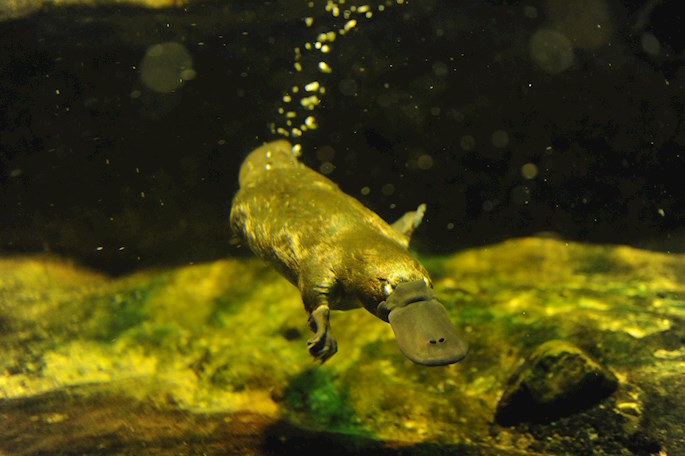Platypus threatened by 22% habitat reduction in 30 years
Published : 23 Nov 2020, 23:09
The habitat of the platypus, an emblematic animal endemic to Australia, has been reduced by 22 percent in the last 30 years, which endangers its survival, according to a scientific study published Monday, reported EFE-EPA.
The habitat of the semi-aquatic mammal with a duckbill and beavertail is being destroyed over dam constructions, excessive river water collection, the felling of trees, urban development and attacks by dogs and foxes, the University of New South Wales report read.
The worst declines were located in places where river systems have changed, such as the Murray-Darling Basin, which covers nearly 15 percent of the nation's oceanic territory and is where one-third of all crops are grown. food of the country.
The research, conducted with the Australian Conservation Foundation and other environmental organizations, concluded this animal should be included in Australia's list of threatened species.
The platypus is a semiaquatic animal with nocturnal habits which has reptilian characteristics such as oviparous reproduction and lives in rivers in eastern Australia and the island of Tasmania.
The study indicates that platypus viewing areas were reduced by 32 percent in New South Wales, 27 percent in Queensland and 7 percent in Victoria.
Platypuses also get caught in fishing nets and are victims of droughts and fires caused by climate change.
"There is great concern that platypus populations will disappear forever from some rivers if they continue to degrade with droughts and dams," said Richard Kingsford, the report’s author.
The platypus, which has declined in population since the British colonization of the country at the end of the 18th century, is considered one of the most primitive mammals from an evolutionary point of view.
This species first arrived at the Natural History Museum in London in 1799, but after seeing it had a beavertail, rooster spur, duckbill, teeth, frog legs and moleskin, British doctor George Shaw initially deemed it a fraud over the rarity of such an animal.


